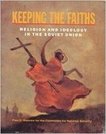Sort by: Author | Title | Publication Year
BOOKS
Abba Hillel Silver: A Profile in American JudaismMarc Lee Raphael, with an introduction by Rabbi Alexander M. Schindler The preeminent American rabbi during four decades, Abba Hillel Silver was one of the earliest great liberal Jewish activists and perhaps the most widely sought after Jewish speaker in America in his day. For forty-six ears, he served as spiritual leader to the largest Reform Jewish congregation in the United States, The Temple, in Cleveland, long known for its non-Zionist orientation. In the 1920s More > |  |
Between Hashemites and Zionists: The Struggle for Palestine, 1908-1988Martin Sicker In his probing, startling fresh analysis of the Hashemite-Zionist struggle for Palestine—the area of the earlier British mandate that is today occupied by the states of Israel and Jordan—Martin Sicker cuts through the polemic that has clouded fundamental aspects of the Arab-Israeli conflict. Sicker reveals the essential background of the problem over the past seventy-odd years in its More > |  |
Keeping the Faiths: Religion and Ideology in the Soviet UnionPaul D. Steeves Topics include religious tradition, competing faiths, religious life and the Gorbachev era. More > |  |
West German Filmmakers on Film: Visions and VoicesEric Rentschler, editor This book presents reflections on the New German Cinema by such prominent artists as Fassbinder, Kluge, and Syberberg. Positioning these filmmakers' statements within their historical and theoretical contexts in his introduction, he offers here what is in essence a running self-reflection by 50 West German filmmakers on German film. More > |  |
Science, Politics, and International Conferences: A Functional Analysis of the Moscow Political Science CongressRichard L. Merritt and Elizabeth C. Hanson While there are many widely held assumptions about the impact of international scientific congresses (ISCs) on individual scientists, collective bodies, a particular branch of science, or even the establishment of world order, these assumptions have not previously been fully examined or tested empirically. Merritt and Hanson present here the results of their systematic investigation of the uses More > |  |
Democracy in Developing Countries: Volume 3, AsiaLarry Diamond, Juan Linz, and Seymour Martin Lipset, editors In Volume 3 of the four-volume Democracy in Developing Countries, the authors follow a common analytical framework to trace the experiences with democratic and authoritarian rule and assess the underlying causes of democratic success and failure in ten Asian countries. Volumes 2 and 4 of the set cover Africa and Latin America. In Volume 1, Professors Diamond, Linz, and Lipset weigh the evidence More > |  |
Bibliography of Women Writers from the Caribbean: 1831–1986Brenda F. Berrian and Aart Broek, editors This exhaustive bibliography includes creative works by Dutch-, English-, French-, and Spanish-speaking women writers from the Caribbean. The entries are grouped by language region, and within region by genre. There is also an extensive author index.
More > | |
The Butts [a novel]Driss Chraibi, translated by Hugh A. Harter The dehumanization of the Arabs who emigrated to "Mother France" is the subject of Chraïbi’s second novel, echoing Simple Past. This time, however, the focus is more on the values and customs of the West, whose promises to the Islamic world appear as a facade for violence and exploitation.
The story unfolds in the mind of Yalaan Waldik, an "Arabo" who aspires to More > | |
Mother Spring [a novel]Driss Chraibi, translated by Hugh A. Harter Beginning with an epilogue set in the present, this novel quickly moves back to the time of the generation after Muhammad—a time when North Africa, the home of the Berber peoples, was overrun by Arab armies. With strong characters and a compelling sense of place, Chraïbi demonstrates how the Berbers tried to maintain their cultural identity in the face of the overwhelmingly rapid and More > | |
Our Sun Will RiseAmelia Blossom House, with drawings by Selma Waldman A collection of forty-two poems that depict the pain and pathos, the political and personal struggles that marked South Africa during apartheid. House is acutely sensitive to the sometimes subtle, sometimes explosive tensions of her homeland—and to the hope that must accompany any movement toward liberation.
Eighteen full-page drawings by Selma Waldman are presented as visual responses to More > |



